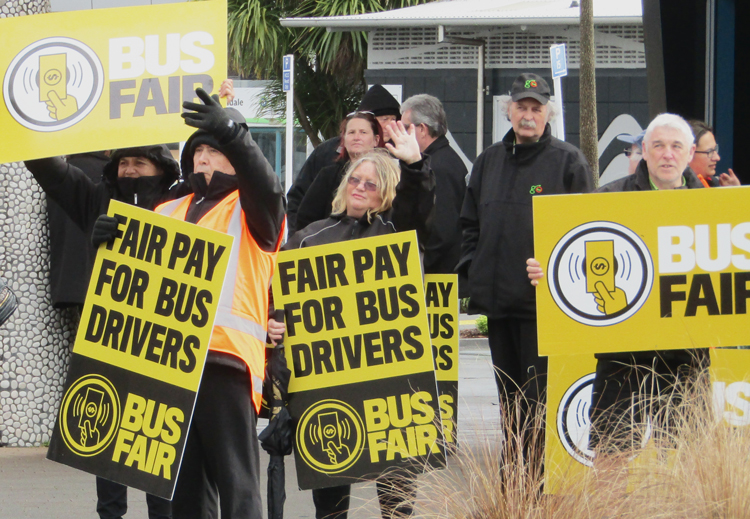HAMILTON, New Zealand — Sixty bus drivers, members of FIRST Union, picketed the central city transport center here Aug. 14 as part of a daylong strike against Go Bus. The workers are demanding 20 New Zealand dollars and 55 cents per hour “living wage” (US$13.60), and that the company fix electrical and mechanical faults on the buses that are safety risks.
Union members who operate school buses in the nearby towns of Te Awamutu and Otorohanga joined the picket line.
Drivers also object to variations in pay for the same work and that some who transferred to Go Bus when it took over Pavlovich Coachlines earlier this year don’t get overtime rates for Sunday work.
“I have to work 47 hours a week just to pay the bills, and often work 55,” driver Michael Low told the Militant. “You shouldn’t have to work so many hours to do that.”
Go Bus is owned by the billion-dollar holding companies of two major Maori tribes, Ngai Tahu and Tainui. It is New Zealand’s largest bus company, operating urban, intercity and school services throughout the country.
Go Bus kept some buses on the road during the strike with nonunion drivers and supervisory staff.
The union and company have been trying to negotiate a contract for over 18 months. School bus drivers went on strike May 8 and city bus drivers here struck May 14 over the same issues. “The company came back with a lowball offer that the union rejected,” Low said.
The condition of many buses is also a sore point. “I’ve ‘defected’ many buses recently and had to refuse to take them out when they’re not fixed,” said driver John Schaeffer. Recently, a small child got stuck in the doors on the bus he was driving when the doors failed to automatically reopen.
“The only way to get the bus warm on a cold morning is to run the windscreen demisters,” because the air conditioning is permanently set on cold, he said. Drivers held a further strike Aug. 29.


